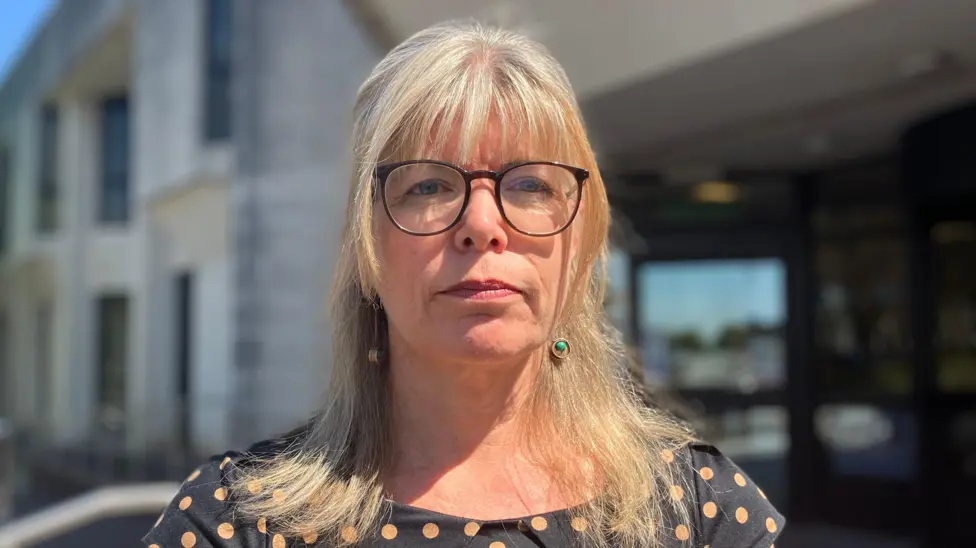Education
Th e rise of the ‘sensible student’

 A NEW study by global nutrition company Herbalife reveals that over 92% of students are now in search of a healthier lifestyle. As a new wave of under-graduates embarks on university life, it could be time to re-visit old clichés and misconceptions about what life is really like as a modern day student. Has the recession, a fragile economy, rising tuition fees and a competitive job market now created a student culture that’s far removed from the stereotypes which emerged during the ‘Young Ones’ era?
A NEW study by global nutrition company Herbalife reveals that over 92% of students are now in search of a healthier lifestyle. As a new wave of under-graduates embarks on university life, it could be time to re-visit old clichés and misconceptions about what life is really like as a modern day student. Has the recession, a fragile economy, rising tuition fees and a competitive job market now created a student culture that’s far removed from the stereotypes which emerged during the ‘Young Ones’ era?
Are the days of Red Bull, Pro Plus and rounds of toast as a support for exams really a thing of the past? In short, are students now more sensible? Research certainly suggests so. In its study of over 11,000 Europeans across 14 markets to examine changing attitudes to nutrition and wellness, Herbalife found that almost 90% of UK students have already made steps to try and lead a healthier lifestyle. The survey revealed a large number of UK students now consider the nutritional content of their food with 74% eating three good meals a day and over 70% classifying themselves as healthy. Exercise is important too, with 75% of UK students exercising 3 times a week or more. With the health industry seeing a boom in sales of nutritional products and interest in healthy eating and fitness at its highest point in years, it seems this shift in attitude is perhaps to be expected.
Couple this with a plethora of savvy cooking blogs, stylish health & fitness ezines and a rising trend for teenage chefs and it seems that students are certainly not short of inspiration when it comes to leading a healthier life away from home. Kathryn Bradley, a 20 year old student from Belfast says she couldn’t believe the impact a healthier, more nutritious diet had on her lifestyle and wellbeing. ‘I used to suffer from incredibly low energy levels, but after eating more healthily and drinking lots of water, I noticed an immediate impact – not only in my energy, but my motivation to do things and my wellbeing in general. This has had a positive effect on my studies and I’ve also been inspired to start my own business too – something I’d never dreamed of doing before.’ According to the survey, 72% of students now consider the nutritional content of their food.
Kathryn says: ‘Through education around food, I managed to make big changes to my diet. Instead of reaching for a packet of crisps or a round of toast, I’ll have a banana, a healthy protein bar or a handful of nuts. I’m constantly buzzing and people are always asking me what I’m doing! These sentiments are echoed by Jake Sanders – a 21 year old student at Brunel University in Uxbridge – who used good nutrition to keep a clear head during exams. ‘Whilst all my mates were reaching for the Red Bull, I’d have Aloe tea, healthy shakes and a proteinrich diet to keep me on the ball. The constant revision and pressure of exams can be immense – eating well definitely helped get me through it all.’
As well as being more health conscious, a growing number of university students are not just concentrating on their degree or their social life but are focused on starting their own business too. From ‘The Underground Book Club’ set up by Andy Brown in his final year at the University of Bath to “First Class Products” set up by Exeter University Geography student Tom Ellis. Some of the most influential companies have risen from university projects to world dominating giants like Facebook, Google or WordPress. Such role models are compelling and it seems that students aren’t waiting to graduate to get started. Luke Hanlon, 20 from Wales started running his own business in his second year of University, quitting his part time Sales Assistant role at M&S once he realised the monetary benefits of going it alone. Fourteen months in and he now makes enough income to cover his rent and student expenses, working his business part time around university and football coaching.
Luke says: “I started out running free Fitclubs in Cardiff and moved into nutrition after seeing such a strong need and demand for healthy weight loss products. My business success is largely down to word of mouth. Referrals are essential and only happen through good, positive feedback. It’s advertising that money can’t buy – network marketing is, in my opinion, the business of the future.” There’s also that small matter of job satisfaction, as Luke says: “There’s no bigger motivator than doing something you love. I’m extremely passionate about my business and love the fact that I can use my education and knowledge to inspire people through sport, health and fitness.”
This emerging trend in the student market has been noticed by Employment Minister Esther McVeywho was recently quoted as saying young people should think about starting their own business, adding that being their own boss can be more satisfying – financially and professionally – than embarking on a career with a large firm. With recent figures revealing over 4.5 million people now self employed, it seems this employment trend is set to continue, with increasing numbers of people pursuing their own interests and passions to carve out positive business opportunities. Gavin Aley, Senior Country Director, Herbalife UK, Ireland & Iceland comments: “It appears a new type of student is emerging; not only were they one of the most health conscious sectors we polled but they also seem to be one of the most entrepreneurial too.” “The spirit of free enterprise does seem to be alive and kicking amongst UK students. We’re noticing a growing interest in Herbalife as a business opportunity from under-graduates who are happy to take advantage of the flexible working hours offered by direct selling as a way of earning while in education.”
Community
Letterston nursery equipment could be stored in cemetery

A CALL for a storage container for a “well-established and valued” Pembrokeshire children’s nursery in a nearby cemetery has been submitted to county planners.
In an application to Pembrokeshire County Council, Diane Evans of Meithrinfa Do Re Mi Nursery seeks permission for the installation of a storage container, partially in retrospect, at Horeb Cemetery, Station Road, Letterston.
A supporting statement says: “The container is required to provide essential ancillary storage to support the lawful and established nursery use within the [nearby] chapel building.
“The site forms part of an active cemetery, owned and managed by a group of trustees. The applicant is one of the trustees and has obtained formal permission from the trustees for the container to be sited on this land. The area selected previously comprised a large, longstanding mound of garden waste which has now been removed. The land has been levelled and prepared with a hard-standing base.
“The container will be used solely for storage of nursery equipment and materials, including outdoor learning resources, maintenance equipment, and items required to manage both the nursery grounds and the cemetery land. No additional operational activity will take place within or around the container.”
It adds: “The day nursery provides childcare for approximately 83 children from the local community and employs 21 staff, all of whom live locally. The nursery is a well-established and valued community facility, supporting local families and contributing positively to the local economy. Adequate storage is essential to ensure the safe, efficient and compliant operation of the nursery. The chapel building itself has limited internal storage, making external ancillary storage necessary.”
It says the nursery “operates with a strong community focus and promotes sustainability and environmental awareness,” with plans to soften its appearance through the planting of trees, shrubs and flowers.
It added: “Children will take part in a ‘sow, grow and give’ project, growing cut flowers from seed. These flowers will be made available to the community, particularly visitors to the cemetery, who will be invited to cut flowers to place on the graves of loved ones. This initiative enhances biodiversity, strengthens community links, and adds social value to the cemetery space.”
The application will be considered by county planners at a later date.
Education
Parents urge council not to close Ysgol Llansteffan

Campaigners call for delay amid Welsh language investigation and rising pupil numbers
PARENTS and campaigners have urged Carmarthenshire County Council’s Cabinet not to recommend the closure of Ysgol Llansteffan when members meet on Monday (Feb 23).
The appeal comes ahead of a proposed decision that could see the village’s Welsh-medium primary school close in August this year.
The Ysgol Llansteffan Parents and Teachers Association (PTA), supported by Cymdeithas yr Iaith, has written to councillors calling for the process to be halted, arguing that key evidence remains incomplete and that the case for closure is flawed.

Among their concerns is an ongoing investigation by the Welsh Language Commissioner into the language impact assessment used to support the closure proposal. Campaigners say it would be inappropriate for the council to make a final decision before the investigation is concluded.
They also claim no council decision-makers have visited the school to verify the information used in the proposal, despite significant changes in circumstances, including a rise in pupil numbers to 17 as of January 2026.
The PTA argues that this increase undermines earlier projections and raises questions about the reliability of longer-term forecasts used to justify closure.
Financial concerns have also been raised. While council documents suggest annual savings of around £112,000, campaigners say transport costs of approximately £50,000 per year and inflationary pressures have not been clearly accounted for, potentially overstating the net benefit.
Parents say closure would remove parental choice and risk damaging Welsh-medium education in the area by forcing some children to travel further or potentially move into English-medium provision.
Cymdeithas yr Iaith has backed the PTA’s call, warning that the council’s objection report failed to properly address concerns that insufficient school capacity elsewhere could push pupils out of Welsh-medium education altogether.
Campaigners have also criticised what they describe as factual inconsistencies in the council’s reports, including outdated enrolment figures and conflicting capacity estimates for neighbouring schools.
The PTA has asked the council to defer any decision until updated data is available, the Commissioner’s findings are published, and alternative options for sustaining the school have been fully explored.
In their letter, parents stressed they remain willing to work constructively with the council to develop a long-term solution that would allow the school to remain open as a sustainable Welsh-medium provision for the community.
Carmarthenshire County Council has previously said the proposal is intended to address falling pupil numbers, high surplus places and financial pressures at the school. Cabinet members were told earlier in the process that neighbouring Ysgol Llangain would have sufficient capacity to accommodate pupils if the closure proceeds, and that transferring learners would provide access to improved facilities and help ensure long-term sustainability of education provision in the area.
The final decision is expected to be taken by full council in March following the Cabinet’s recommendation.
Crime
Teacher stabbed by pupil criticises school weapon scanner plans

Victim says teachers should not be turned into “security guards” after Ammanford attack
A TEACHER who was stabbed multiple times by a pupil at a Carmarthenshire school has criticised proposals to introduce weapon scanners in classrooms, warning they risk shifting responsibility onto already overstretched staff.
Liz Hopkin was attacked by a teenage student at Ysgol Dyffryn Aman, Ammanford, in April 2024, in an incident that shocked communities across Wales.
Speaking to BBC Radio Wales, Ms Hopkin said she does not believe scanners are “the answer” to preventing violence in schools and warned they could undermine relationships between teachers and pupils.
She said the focus should instead be on preventing young people from bringing weapons to school in the first place.
“This isn’t about preventing people bringing knives into school in the first place. This is just about detection,” she said.
“If by the time you’ve got the knife in school, you’ve missed so many opportunities prior to that to stopping that knife coming in in the first place.”
Ms Hopkin also warned that introducing scanning responsibilities could place teachers in unsafe and inappropriate situations.
“To stop putting the responsibility onto schools — we already have enough responsibility with less and less and less resources,” she said.
“You’re adding the role of security guard to teachers who are trying to build relationships with young people.”
Despite suffering serious injuries in the attack, she said she still did not believe scanners were the right approach.
“In my own head, as somebody who’s been right at that point where I’ve been stabbed — I was stabbed five times and feared that I would die — I still don’t think it’s a good idea,” she said.
The Welsh Government told the BBC that its work around weapons in schools forms part of a wider strategy to improve behaviour, with a strong emphasis on prevention rather than enforcement.
Officials said any decision to use scanners would be made by individual local authorities, and there is no expectation that teachers or school staff should carry out security duties.
Some councils have already trialled handheld scanners. Cardiff Council has supplied them to schools, but they are only used when there is a clear concern a pupil may be carrying a weapon.
The stabbing at Ysgol Dyffryn Aman led to renewed debate about school safety across Wales, including behaviour management, pupil support services, and funding pressures facing education.
Ms Hopkin added: “I would never ever suggest that anybody put themselves at risk to check. That’s not our role.”
(Image: BBC)
-

 Health3 days ago
Health3 days agoWithybush loses emergency surgery in shock health board decision
-

 Health3 days ago
Health3 days agoHealth board confirms major hospital changes across west Wales
-

 Health2 days ago
Health2 days agoConcerns grow over Bronglais stroke plans as politicians demand clarity
-

 Health3 days ago
Health3 days agoHealth board: Changes will bring “resilience and sustainability” to West Wales services
-

 Business5 days ago
Business5 days agoMS’s host business advice surgery following demand from Business Rates Online Forum
-

 Community6 days ago
Community6 days agoHywel Dda hospital services decisions will be made next week
-

 Business6 days ago
Business6 days agoSvitzer crews at Milford Haven vote for industrial action in pay dispute
-

 Crime6 days ago
Crime6 days agoMan who attacked woman outside Milford Haven bar ‘shows no remorse whatsoever’



























https://owlbadges.com
December 29, 2025 at 10:19 pm
This was very informative. I appreciate the clarity and depth.